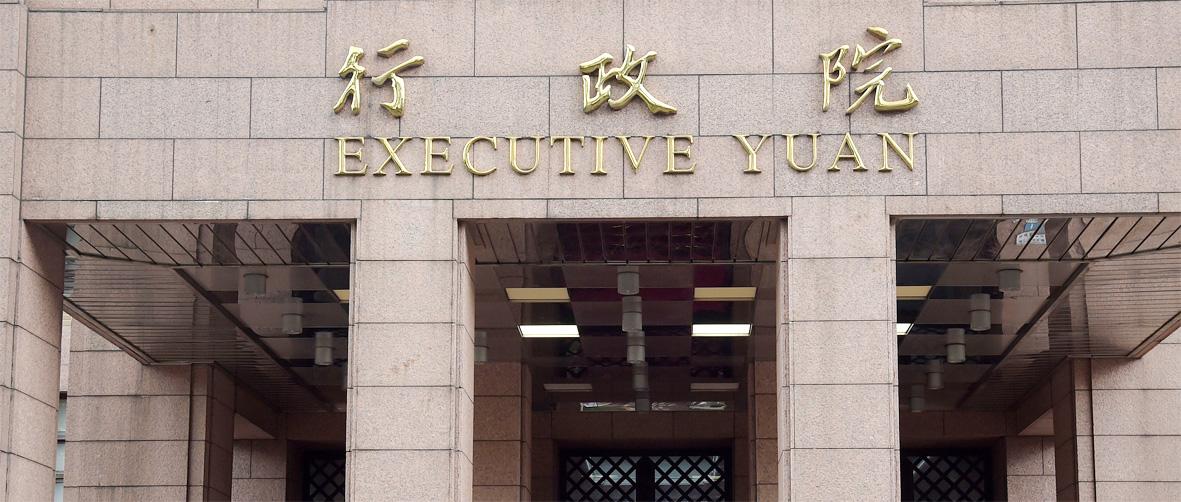The Executive Yuan on Thursday approved draft amendments to curb the creation of “deepfake” pornography, and make the production and distribution of fake or manipulated images and video for profit a crime punishable by up to seven years in jail.
The proposals include an article directly addressing the practice of using machine learning or other means to insert the likeness of a person into existing videos or images.
The drafts were proposed after the arrest of a Taiwanese YouTuber suspected of creating and selling deepfake pornographic videos featuring more than 100 public figures and the “Nth Room” case in South Korea, in which a person spread sexually exploitive content through the Telegram app from 2018 to 2020.

Photo: CNA
The proposed legislation would add a provision to the Criminal Code making the production of sexual material of a person without their consent subject to a maximum prison sentence of three years, while the unauthorized distribution of such material could result in jail terms from six months to five years.
Anyone convicted of using threats or violence to coerce someone into creating or participating in sexual content would face up to five years in prison, and those distributing such content face one to seven years in jail.
Under the drafts, the punishments could be increased by one-and-a-half times for distributing such content for profit.
The production or dissemination of deepfakes is punishable by a jail term of up to five years, and up to seven years if the offense is profit-related, the proposals showed.
An amendment to the Child and Youth Sexual Exploitation Prevention Act (兒童及少年性剝削防制條例) would raise the punishment for filming an underage person engaging in sexual intercourse or obscene acts, or producing material that show such acts through recruitment or other means, from three to seven years in prison to up to 10 years.
The proposal would raise the sentence for anyone who distributes material depicting an underage person engaging in sexual intercourse or obscene acts from no more than three years to one to seven years.
Anyone who possesses sexually explicit images or video of an underage person, with no reasonable explanation, would face up to one year in prison.
Internet service providers should have a mechanism in place to immediately remove illegal images and video, the drafts say.
They would also be required to maintain an online database of crimes and criminals as well as the personal data and records of suspected criminals for up to 180 days. Failure to do so would result in a fine of NT$60,000 to NT$600,000.
The proposed legislation also prohibits media from identifying victims of sexual violence, with fines of NT$60,000 to NT$600,000 for contraveners.
The draft amendments are to be submitted to the Legislative Yuan for review.

Taipei has once again made it to the top 100 in Oxford Economics’ Global Cities Index 2025 report, moving up five places from last year to 60. The annual index, which was published last month, evaluated 1,000 of the most populated metropolises based on five indices — economics, human capital, quality of life, environment and governance. New York maintained its top spot this year, placing first in the economics index thanks to the strength of its vibrant financial industry and economic stability. Taipei ranked 263rd in economics, 44th in human capital, 15th in quality of life, 284th for environment and 75th in governance,

Greenpeace yesterday said that it is to appeal a decision last month by the Taipei High Administrative Court to dismiss its 2021 lawsuit against the Ministry of Economic Affairs over “loose” regulations governing major corporate electricity consumers. The climate-related lawsuit — the first of its kind in Taiwan — sought to require the government to enforce higher green energy thresholds on major corporations to reduce emissions in light of climate change and an uptick in extreme weather. The suit, filed by Greenpeace East Asia, the Environmental Jurists Association and four individual plaintiffs, was dismissed on May 8 following four years of litigation. The

A former officer in China’s People’s Liberation Army (PLA) who witnessed the aftermath of the 1989 Tiananmen Square massacre has warned that Taiwan could face a similar fate if China attempts to unify the country by force. Li Xiaoming (李曉明), who was deployed to Beijing as a junior officer during the crackdown, said Taiwanese people should study the massacre carefully, because it offers a glimpse of what Beijing is willing to do to suppress dissent. “What happened in Tiananmen Square could happen in Taiwan too,” Li told CNA in a May 22 interview, ahead of the massacre’s 36th anniversary. “If Taiwanese students or

The New Taipei City Government would assist relatives of those killed or injured in last month’s car-ramming incident in Sansia District (三峽) to secure compensation, Mayor Hou You-yi (侯友宜) said yesterday, two days after the driver died in a hospital. “The city government will do its best to help the relatives of the car crash incident seek compensation,” Hou said. The mayor also said that the city’s Legal Affairs, Education and Social Welfare departments have established a joint mechanism to “provide coordinated assistance” to victims and their families. Three people were killed and 12 injured when a car plowed into schoolchildren and their